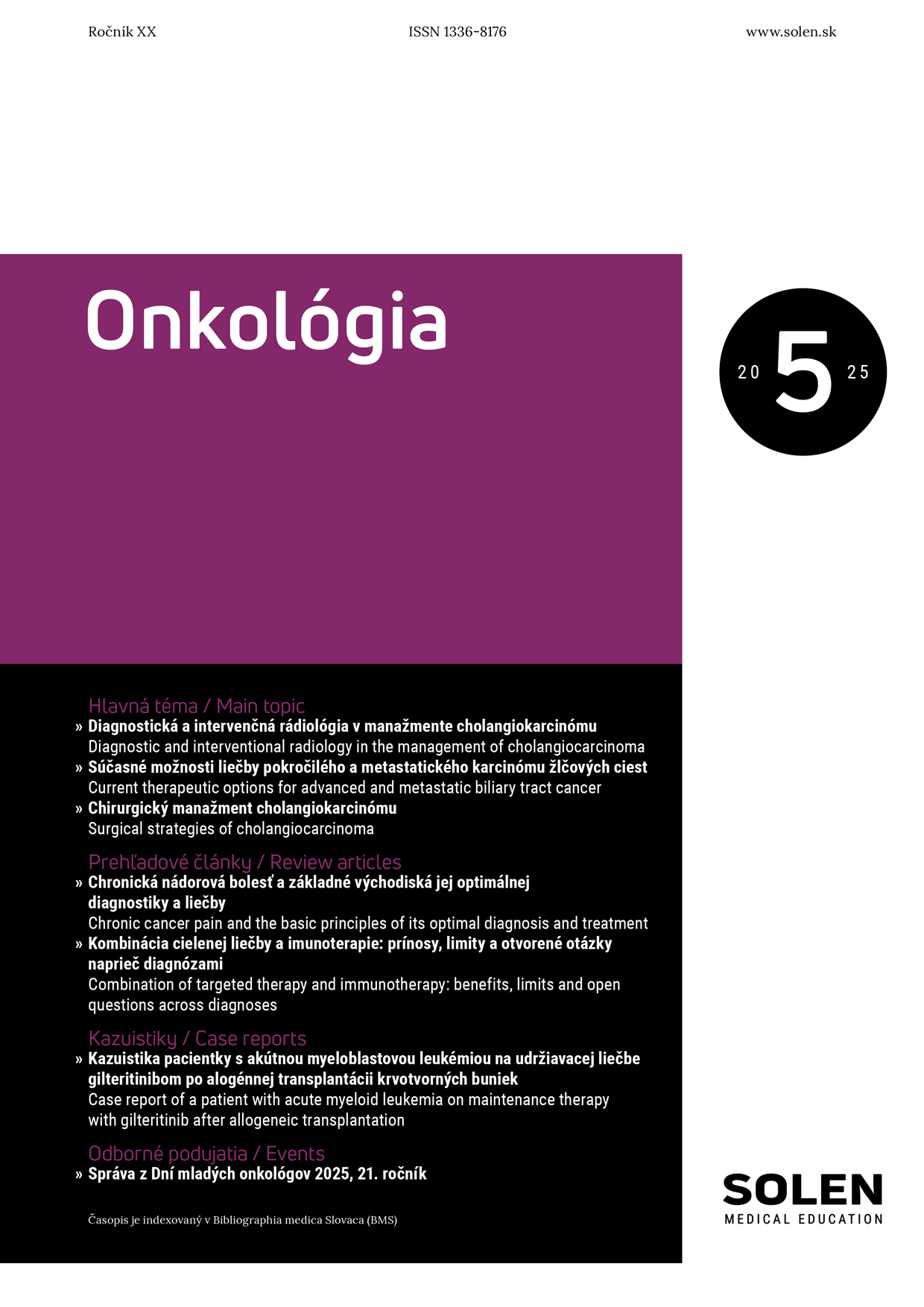Onkológia 4/2020
Neoadjuvant therapy of triple-negative breast cancer
Triple-negative breast cancer (TNBC) accounts for approximately 15% of all breast cancers. These are tumours that do not express the estrogen receptor (ER) or the progesterone receptor (PR) or the human epidermal growth factor receptor 2. The treatment of early and locally advanced TNBC is complex and multimodal. Neoadjuvant treatment for invasive breast tumours is systemic treatment given before planned surgery in indicated patients, who meet the indication criteria. In general, if not contraindicated, we administer chemotherapy based on anthracyclines and taxanes, preferably in sequence. The presence and extent of residual invasive disease after neoadjuvant treatment is a strong prognostic factor for the risk of disease recurrence, especially in TNBC. At present, there is an effort to improve the survival of patients with TNBC, various approaches are being tried to increase the achieved pCR (addition of platinum derivates, immunotherapy). Most patients no longer require any adjuvant chemotherapy after administration of standard NACT, after achieving an adequate response. However, a significant survival benefit was observed with capecitabine in women with residual disease after standard NACT, especially TNBC.
Keywords: breast cancer, triple-negative breast cancer, neoadjuvant therapy, chemotherapy, imunotherapy

















